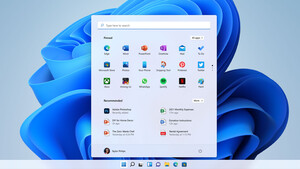Hallo liebes Forum,
ich habe eine neue SSD (Samsung NVMe 960 Evo) installiert und Windows 10 frisch draufgesetzt. Seit dem habe ich unlösbare Latenzprobleme durch "storport.sys"
Egal was ich mache, kriege ich diese Latenz nicht weg. Es geht hier um einen Audio-Rechner und Latenz ist das Allerwichtigste überhaupt. Tatsächlich kriege ich im neuen System nervige Dropouts in Cubase.
Ich forste seit Tagen Google und Foren durch und habe gefühlt alles probiert=>Kein Fortschritt.
Alle Treiber neu
Intel rapid storage de- und installiert
CPU Einstellungen getestet
BIOS aktuell..
Mit gleichem Hardware mit Sata-SSD anstatt Samsung Evo gibt's das Problem nicht.
Hat jemand eine Idee, wie ich dieses Problem in den Griff kriege?
Ich bin extremst dankbar für irgendeinen Lösungsansatz...
Grüße
Komponenten:
i7 6700k
Asus Z170-K
Nvidia 730 GT
Alte SATA-SSD 128GB / Samsung Evo 960 500GB
Anbei Latencymon Protokoll.
________________________________________________________________________________ _________________________
CONCLUSION
________________________________________________________________________________ _________________________
Your system appears to be having trouble handling real-time audio and other tasks. You are likely to experience buffer underruns appearing as drop outs, clicks or pops. One or more DPC routines that belong to a driver running in your system appear to be executing for too long. One problem may be related to power management, disable CPU throttling settings in Control Panel and BIOS setup. Check for BIOS updates.
LatencyMon has been analyzing your system for 0:04:26 (h:mm:ss) on all processors.
________________________________________________________________________________ _________________________
SYSTEM INFORMATION
________________________________________________________________________________ _________________________
Computer name: DESKTOP-MHO2AIN
OS version: Windows 10 , 10.0, build: 14393 (x64)
Hardware: ASUSTeK COMPUTER INC., Z170-K
CPU: GenuineIntel Intel(R) Core(TM) i7-6700K CPU @ 4.00GHz
Logical processors: 8
Processor groups: 1
RAM: 16324 MB total
________________________________________________________________________________ _________________________
CPU SPEED
________________________________________________________________________________ _________________________
Reported CPU speed: 4008 MHz
Measured CPU speed: 1 MHz (approx.)
Note: reported execution times may be calculated based on a fixed reported CPU speed. Disable variable speed settings like Intel Speed Step and AMD Cool N Quiet in the BIOS setup for more accurate results.
WARNING: the CPU speed that was measured is only a fraction of the CPU speed reported. Your CPUs may be throttled back due to variable speed settings and thermal issues. It is suggested that you run a utility which reports your actual CPU frequency and temperature.
________________________________________________________________________________ _________________________
MEASURED INTERRUPT TO USER PROCESS LATENCIES
________________________________________________________________________________ _________________________
The interrupt to process latency reflects the measured interval that a usermode process needed to respond to a hardware request from the moment the interrupt service routine started execution. This includes the scheduling and execution of a DPC routine, the signaling of an event and the waking up of a usermode thread from an idle wait state in response to that event.
Highest measured interrupt to process latency (µs): 2019,383940
Average measured interrupt to process latency (µs): 1,979113
Highest measured interrupt to DPC latency (µs): 2018,106495
Average measured interrupt to DPC latency (µs): 1,027338
________________________________________________________________________________ _________________________
REPORTED ISRs
________________________________________________________________________________ _________________________
Interrupt service routines are routines installed by the OS and device drivers that execute in response to a hardware interrupt signal.
Highest ISR routine execution time (µs): 210,805140
Driver with highest ISR routine execution time: dxgkrnl.sys - DirectX Graphics Kernel, Microsoft Corporation
Highest reported total ISR routine time (%): 0,028963
Driver with highest ISR total time: dxgkrnl.sys - DirectX Graphics Kernel, Microsoft Corporation
Total time spent in ISRs (%) 0,042385
ISR count (execution time <250 µs): 148574
ISR count (execution time 250-500 µs): 0
ISR count (execution time 500-999 µs): 0
ISR count (execution time 1000-1999 µs): 0
ISR count (execution time 2000-3999 µs): 0
ISR count (execution time >=4000 µs): 0
________________________________________________________________________________ _________________________
REPORTED DPCs
________________________________________________________________________________ _________________________
DPC routines are part of the interrupt servicing dispatch mechanism and disable the possibility for a process to utilize the CPU while it is interrupted until the DPC has finished execution.
Highest DPC routine execution time (µs): 2015,821856
Driver with highest DPC routine execution time: storport.sys - Microsoft Storage Port Driver, Microsoft Corporation
Highest reported total DPC routine time (%): 0,063559
Driver with highest DPC total execution time: Wdf01000.sys - Kernelmodustreiber-Frameworklaufzeit, Microsoft Corporation
Total time spent in DPCs (%) 0,125553
DPC count (execution time <250 µs): 840055
DPC count (execution time 250-500 µs): 0
DPC count (execution time 500-999 µs): 2
DPC count (execution time 1000-1999 µs): 0
DPC count (execution time 2000-3999 µs): 180
DPC count (execution time >=4000 µs): 0
________________________________________________________________________________ _________________________
REPORTED HARD PAGEFAULTS
________________________________________________________________________________ _________________________
Hard pagefaults are events that get triggered by making use of virtual memory that is not resident in RAM but backed by a memory mapped file on disk. The process of resolving the hard pagefault requires reading in the memory from disk while the process is interrupted and blocked from execution.
NOTE: some processes were hit by hard pagefaults. If these were programs producing audio, they are likely to interrupt the audio stream resulting in dropouts, clicks and pops. Check the Processes tab to see which programs were hit.
Process with highest pagefault count: iastordatamgrsvc.exe
Total number of hard pagefaults 10364
Hard pagefault count of hardest hit process: 2322
Highest hard pagefault resolution time (µs): 503640,375998
Total time spent in hard pagefaults (%): 0,865446
Number of processes hit: 40
________________________________________________________________________________ _________________________
PER CPU DATA
________________________________________________________________________________ _________________________
CPU 0 Interrupt cycle time (s): 4,358184
CPU 0 ISR highest execution time (µs): 210,805140
CPU 0 ISR total execution time (s): 0,888938
CPU 0 ISR count: 147599
CPU 0 DPC highest execution time (µs): 2015,821856
CPU 0 DPC total execution time (s): 2,488011
CPU 0 DPC count: 775132
________________________________________________________________________________ _________________________
CPU 1 Interrupt cycle time (s): 0,406178
CPU 1 ISR highest execution time (µs): 63,811377
CPU 1 ISR total execution time (s): 0,013379
CPU 1 ISR count: 975
CPU 1 DPC highest execution time (µs): 75,304142
CPU 1 DPC total execution time (s): 0,025159
CPU 1 DPC count: 5635
________________________________________________________________________________ _________________________
CPU 2 Interrupt cycle time (s): 0,438413
CPU 2 ISR highest execution time (µs): 0,0
CPU 2 ISR total execution time (s): 0,0
CPU 2 ISR count: 0
CPU 2 DPC highest execution time (µs): 125,750
CPU 2 DPC total execution time (s): 0,040112
CPU 2 DPC count: 14362
________________________________________________________________________________ _________________________
CPU 3 Interrupt cycle time (s): 0,388785
CPU 3 ISR highest execution time (µs): 0,0
CPU 3 ISR total execution time (s): 0,0
CPU 3 ISR count: 0
CPU 3 DPC highest execution time (µs): 34,319361
CPU 3 DPC total execution time (s): 0,011409
CPU 3 DPC count: 5103
________________________________________________________________________________ _________________________
CPU 4 Interrupt cycle time (s): 0,419484
CPU 4 ISR highest execution time (µs): 0,0
CPU 4 ISR total execution time (s): 0,0
CPU 4 ISR count: 0
CPU 4 DPC highest execution time (µs): 73,573603
CPU 4 DPC total execution time (s): 0,035669
CPU 4 DPC count: 14663
________________________________________________________________________________ _________________________
CPU 5 Interrupt cycle time (s): 0,395160
CPU 5 ISR highest execution time (µs): 0,0
CPU 5 ISR total execution time (s): 0,0
CPU 5 ISR count: 0
CPU 5 DPC highest execution time (µs): 40,946357
CPU 5 DPC total execution time (s): 0,013926
CPU 5 DPC count: 5728
________________________________________________________________________________ _________________________
CPU 6 Interrupt cycle time (s): 0,437228
CPU 6 ISR highest execution time (µs): 0,0
CPU 6 ISR total execution time (s): 0,0
CPU 6 ISR count: 0
CPU 6 DPC highest execution time (µs): 227,910180
CPU 6 DPC total execution time (s): 0,046460
CPU 6 DPC count: 15453
________________________________________________________________________________ _________________________
CPU 7 Interrupt cycle time (s): 0,362713
CPU 7 ISR highest execution time (µs): 0,0
CPU 7 ISR total execution time (s): 0,0
CPU 7 ISR count: 0
CPU 7 DPC highest execution time (µs): 55,936627
CPU 7 DPC total execution time (s): 0,012105
CPU 7 DPC count: 4161
ich habe eine neue SSD (Samsung NVMe 960 Evo) installiert und Windows 10 frisch draufgesetzt. Seit dem habe ich unlösbare Latenzprobleme durch "storport.sys"
Egal was ich mache, kriege ich diese Latenz nicht weg. Es geht hier um einen Audio-Rechner und Latenz ist das Allerwichtigste überhaupt. Tatsächlich kriege ich im neuen System nervige Dropouts in Cubase.
Ich forste seit Tagen Google und Foren durch und habe gefühlt alles probiert=>Kein Fortschritt.
Alle Treiber neu
Intel rapid storage de- und installiert
CPU Einstellungen getestet
BIOS aktuell..
Mit gleichem Hardware mit Sata-SSD anstatt Samsung Evo gibt's das Problem nicht.
Hat jemand eine Idee, wie ich dieses Problem in den Griff kriege?
Ich bin extremst dankbar für irgendeinen Lösungsansatz...
Grüße
Komponenten:
i7 6700k
Asus Z170-K
Nvidia 730 GT
Alte SATA-SSD 128GB / Samsung Evo 960 500GB
Anbei Latencymon Protokoll.
________________________________________________________________________________ _________________________
CONCLUSION
________________________________________________________________________________ _________________________
Your system appears to be having trouble handling real-time audio and other tasks. You are likely to experience buffer underruns appearing as drop outs, clicks or pops. One or more DPC routines that belong to a driver running in your system appear to be executing for too long. One problem may be related to power management, disable CPU throttling settings in Control Panel and BIOS setup. Check for BIOS updates.
LatencyMon has been analyzing your system for 0:04:26 (h:mm:ss) on all processors.
________________________________________________________________________________ _________________________
SYSTEM INFORMATION
________________________________________________________________________________ _________________________
Computer name: DESKTOP-MHO2AIN
OS version: Windows 10 , 10.0, build: 14393 (x64)
Hardware: ASUSTeK COMPUTER INC., Z170-K
CPU: GenuineIntel Intel(R) Core(TM) i7-6700K CPU @ 4.00GHz
Logical processors: 8
Processor groups: 1
RAM: 16324 MB total
________________________________________________________________________________ _________________________
CPU SPEED
________________________________________________________________________________ _________________________
Reported CPU speed: 4008 MHz
Measured CPU speed: 1 MHz (approx.)
Note: reported execution times may be calculated based on a fixed reported CPU speed. Disable variable speed settings like Intel Speed Step and AMD Cool N Quiet in the BIOS setup for more accurate results.
WARNING: the CPU speed that was measured is only a fraction of the CPU speed reported. Your CPUs may be throttled back due to variable speed settings and thermal issues. It is suggested that you run a utility which reports your actual CPU frequency and temperature.
________________________________________________________________________________ _________________________
MEASURED INTERRUPT TO USER PROCESS LATENCIES
________________________________________________________________________________ _________________________
The interrupt to process latency reflects the measured interval that a usermode process needed to respond to a hardware request from the moment the interrupt service routine started execution. This includes the scheduling and execution of a DPC routine, the signaling of an event and the waking up of a usermode thread from an idle wait state in response to that event.
Highest measured interrupt to process latency (µs): 2019,383940
Average measured interrupt to process latency (µs): 1,979113
Highest measured interrupt to DPC latency (µs): 2018,106495
Average measured interrupt to DPC latency (µs): 1,027338
________________________________________________________________________________ _________________________
REPORTED ISRs
________________________________________________________________________________ _________________________
Interrupt service routines are routines installed by the OS and device drivers that execute in response to a hardware interrupt signal.
Highest ISR routine execution time (µs): 210,805140
Driver with highest ISR routine execution time: dxgkrnl.sys - DirectX Graphics Kernel, Microsoft Corporation
Highest reported total ISR routine time (%): 0,028963
Driver with highest ISR total time: dxgkrnl.sys - DirectX Graphics Kernel, Microsoft Corporation
Total time spent in ISRs (%) 0,042385
ISR count (execution time <250 µs): 148574
ISR count (execution time 250-500 µs): 0
ISR count (execution time 500-999 µs): 0
ISR count (execution time 1000-1999 µs): 0
ISR count (execution time 2000-3999 µs): 0
ISR count (execution time >=4000 µs): 0
________________________________________________________________________________ _________________________
REPORTED DPCs
________________________________________________________________________________ _________________________
DPC routines are part of the interrupt servicing dispatch mechanism and disable the possibility for a process to utilize the CPU while it is interrupted until the DPC has finished execution.
Highest DPC routine execution time (µs): 2015,821856
Driver with highest DPC routine execution time: storport.sys - Microsoft Storage Port Driver, Microsoft Corporation
Highest reported total DPC routine time (%): 0,063559
Driver with highest DPC total execution time: Wdf01000.sys - Kernelmodustreiber-Frameworklaufzeit, Microsoft Corporation
Total time spent in DPCs (%) 0,125553
DPC count (execution time <250 µs): 840055
DPC count (execution time 250-500 µs): 0
DPC count (execution time 500-999 µs): 2
DPC count (execution time 1000-1999 µs): 0
DPC count (execution time 2000-3999 µs): 180
DPC count (execution time >=4000 µs): 0
________________________________________________________________________________ _________________________
REPORTED HARD PAGEFAULTS
________________________________________________________________________________ _________________________
Hard pagefaults are events that get triggered by making use of virtual memory that is not resident in RAM but backed by a memory mapped file on disk. The process of resolving the hard pagefault requires reading in the memory from disk while the process is interrupted and blocked from execution.
NOTE: some processes were hit by hard pagefaults. If these were programs producing audio, they are likely to interrupt the audio stream resulting in dropouts, clicks and pops. Check the Processes tab to see which programs were hit.
Process with highest pagefault count: iastordatamgrsvc.exe
Total number of hard pagefaults 10364
Hard pagefault count of hardest hit process: 2322
Highest hard pagefault resolution time (µs): 503640,375998
Total time spent in hard pagefaults (%): 0,865446
Number of processes hit: 40
________________________________________________________________________________ _________________________
PER CPU DATA
________________________________________________________________________________ _________________________
CPU 0 Interrupt cycle time (s): 4,358184
CPU 0 ISR highest execution time (µs): 210,805140
CPU 0 ISR total execution time (s): 0,888938
CPU 0 ISR count: 147599
CPU 0 DPC highest execution time (µs): 2015,821856
CPU 0 DPC total execution time (s): 2,488011
CPU 0 DPC count: 775132
________________________________________________________________________________ _________________________
CPU 1 Interrupt cycle time (s): 0,406178
CPU 1 ISR highest execution time (µs): 63,811377
CPU 1 ISR total execution time (s): 0,013379
CPU 1 ISR count: 975
CPU 1 DPC highest execution time (µs): 75,304142
CPU 1 DPC total execution time (s): 0,025159
CPU 1 DPC count: 5635
________________________________________________________________________________ _________________________
CPU 2 Interrupt cycle time (s): 0,438413
CPU 2 ISR highest execution time (µs): 0,0
CPU 2 ISR total execution time (s): 0,0
CPU 2 ISR count: 0
CPU 2 DPC highest execution time (µs): 125,750
CPU 2 DPC total execution time (s): 0,040112
CPU 2 DPC count: 14362
________________________________________________________________________________ _________________________
CPU 3 Interrupt cycle time (s): 0,388785
CPU 3 ISR highest execution time (µs): 0,0
CPU 3 ISR total execution time (s): 0,0
CPU 3 ISR count: 0
CPU 3 DPC highest execution time (µs): 34,319361
CPU 3 DPC total execution time (s): 0,011409
CPU 3 DPC count: 5103
________________________________________________________________________________ _________________________
CPU 4 Interrupt cycle time (s): 0,419484
CPU 4 ISR highest execution time (µs): 0,0
CPU 4 ISR total execution time (s): 0,0
CPU 4 ISR count: 0
CPU 4 DPC highest execution time (µs): 73,573603
CPU 4 DPC total execution time (s): 0,035669
CPU 4 DPC count: 14663
________________________________________________________________________________ _________________________
CPU 5 Interrupt cycle time (s): 0,395160
CPU 5 ISR highest execution time (µs): 0,0
CPU 5 ISR total execution time (s): 0,0
CPU 5 ISR count: 0
CPU 5 DPC highest execution time (µs): 40,946357
CPU 5 DPC total execution time (s): 0,013926
CPU 5 DPC count: 5728
________________________________________________________________________________ _________________________
CPU 6 Interrupt cycle time (s): 0,437228
CPU 6 ISR highest execution time (µs): 0,0
CPU 6 ISR total execution time (s): 0,0
CPU 6 ISR count: 0
CPU 6 DPC highest execution time (µs): 227,910180
CPU 6 DPC total execution time (s): 0,046460
CPU 6 DPC count: 15453
________________________________________________________________________________ _________________________
CPU 7 Interrupt cycle time (s): 0,362713
CPU 7 ISR highest execution time (µs): 0,0
CPU 7 ISR total execution time (s): 0,0
CPU 7 ISR count: 0
CPU 7 DPC highest execution time (µs): 55,936627
CPU 7 DPC total execution time (s): 0,012105
CPU 7 DPC count: 4161



